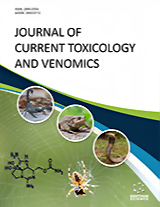Abstract
Background: Spices, including Amomum subulatum and Coriander sativum, are not only popular for improving food flavour but are also accepted worldwide for their health benefits in various disorders.
Objective: This study aimed to elucidate the possible mechanism for the anti-apoptotic effect of terpene-rich extract of Amomum subulatum and Coriandrum sativum against the rodent model of cardiotoxicity.
Methods: Effects of standardized terpenoids-rich aqueous methanolic extract of two commonly used spices, viz. Amomum subulatum Roxb. and Coriandrum sativum Linn., were investigated on doxorubicin-induced apoptotic changes and cardiotoxicity in Wistar rats with the aim of in-vestigating the mechanism. Prior to the in vivo experiment, the extracts were subjected to quan-titative estimation of possible bioactive markers of the terpenes by employing a newly devel-oped, optimized, and validated GC-MS method along with TLC profiling.
Results: Cardiotoxicity was evident from elevated creatinine kinase (CK-MB), lactate dehydro-genase (LDH), and malondialdehyde (MDA) levels in the toxic control group after treatment with doxorubicin (2.5mg/kg i.p. given twice a week for three weeks). Caspase-3, Tumor necrosis factor-α (TNF-α), and Interleukin-6 (IL-6) were also induced in animals treated with doxorubi-cin. Treatment with Amomum subulatum and Coriandrum sativum at the doses of 100 and 200mg/kg exhibited significant (P<0.001) reversal of CK-MB, LDH, MDA, Caspase-3, TNF-α, and IL-6 levels. This protective effect was further supported by the results of DNA gel electro-phoresis and histopathological observations.
Conclusion: This study supports the cardioprotective role of selected spices against doxorubicin-induced cardiotoxicity through the anti-apoptotic mechanism.









